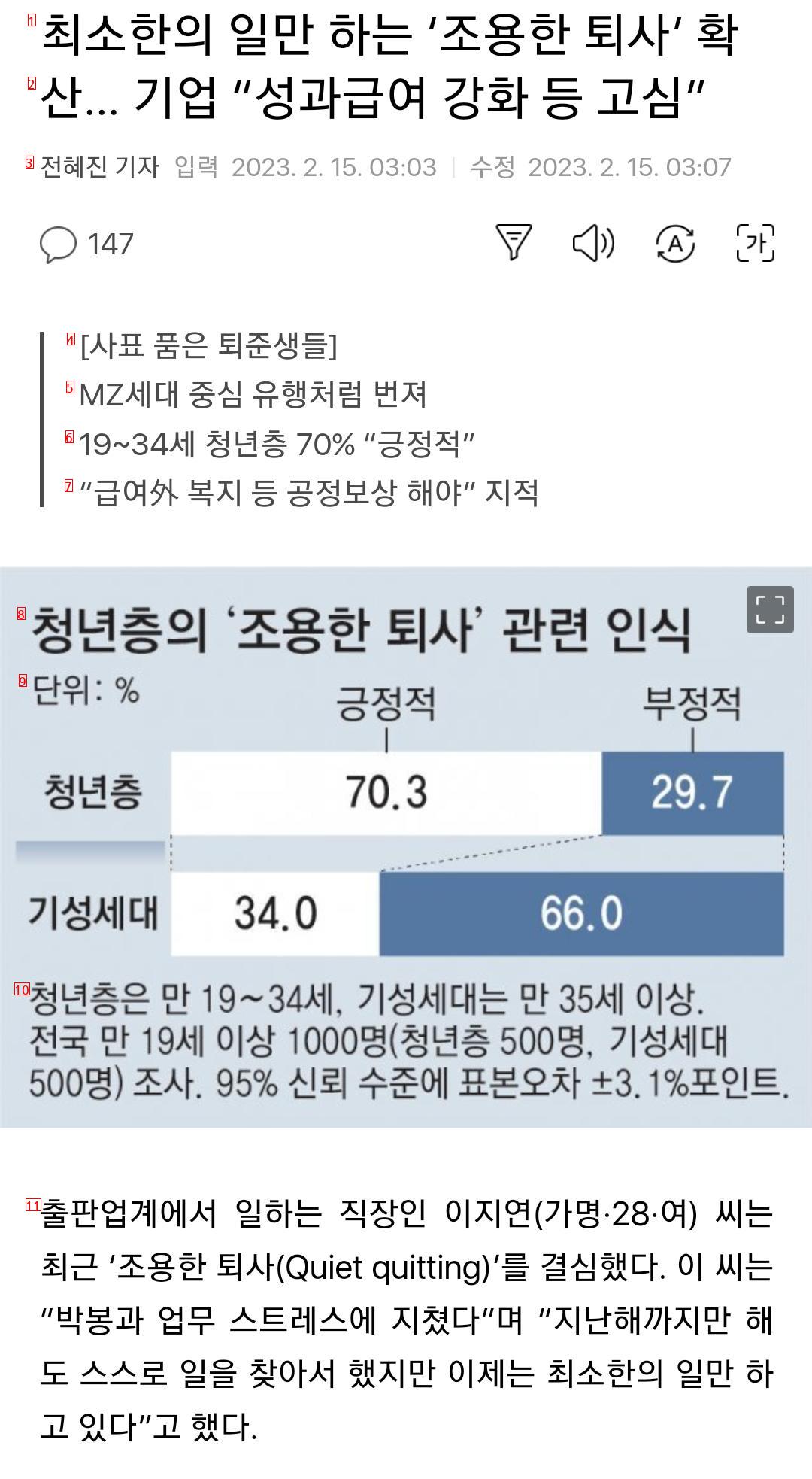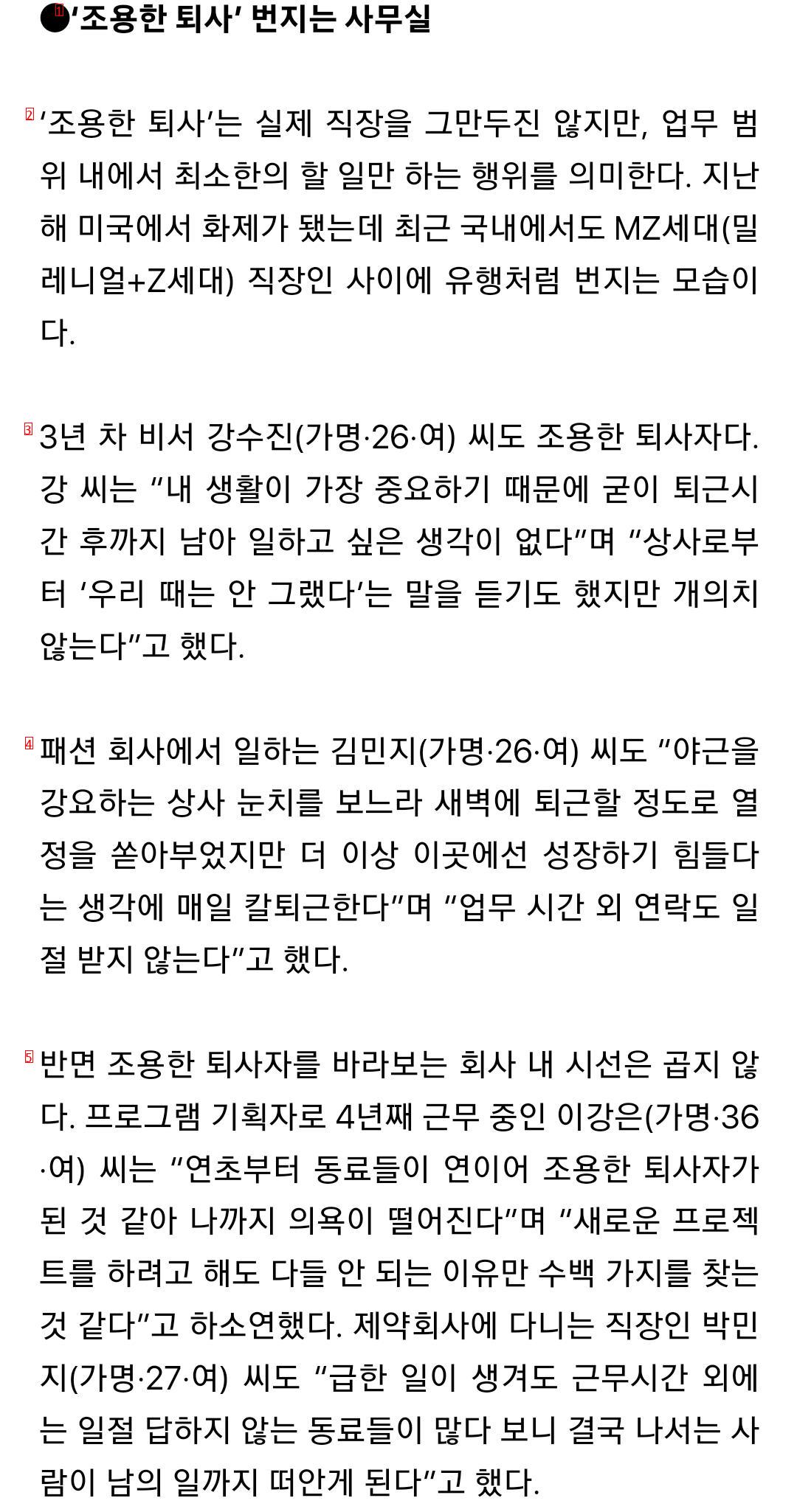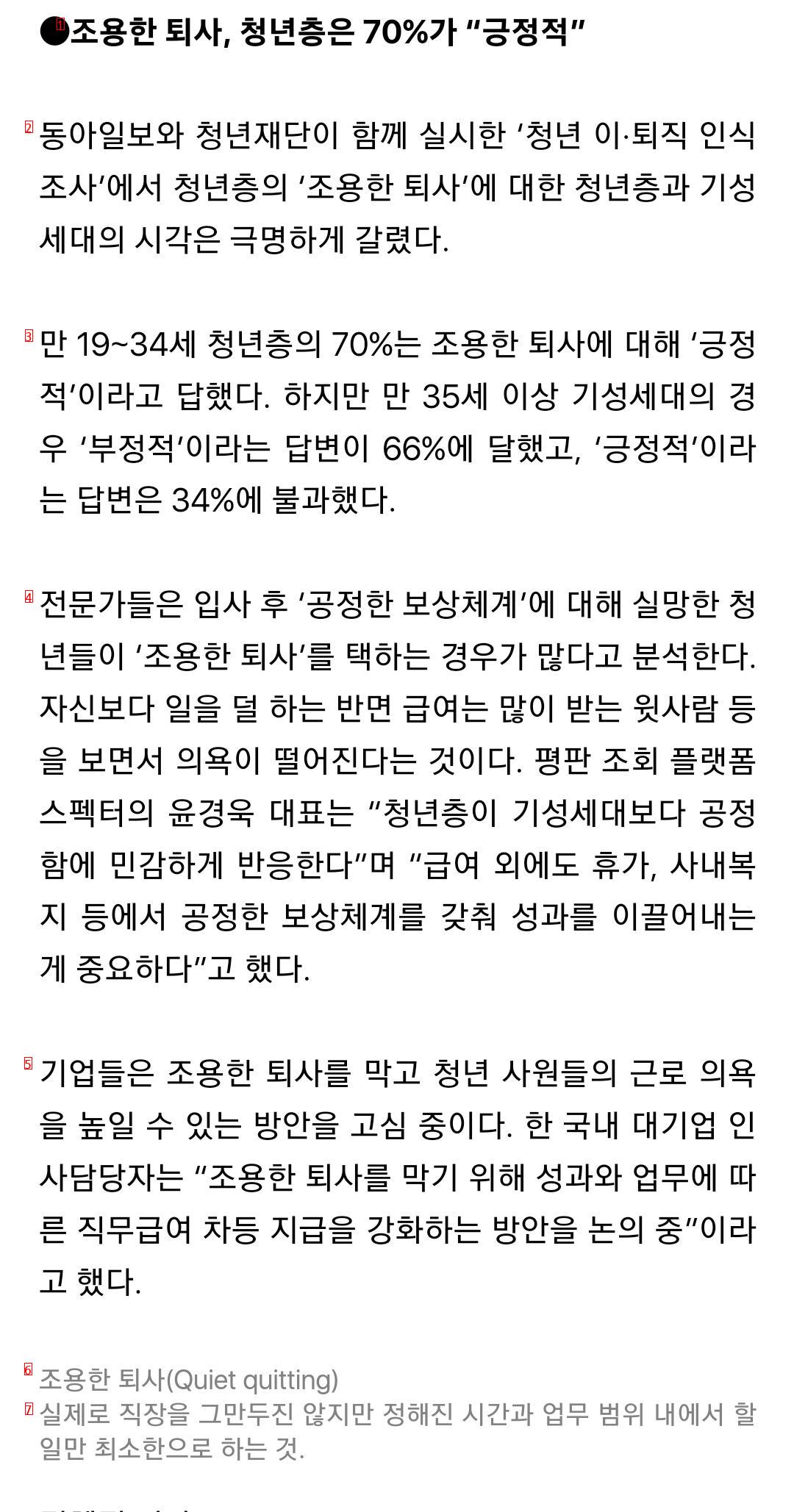
image text translation
(1)”Quiet resignation with minimal work”
(2)Industrial companies are struggling to strengthen performance benefits.
(3)Reporter Jeon Hye-jin Input 20232150303 Modified 20232150307
(4)resignations of students who have retired from school.
(5)It spreads like a trend centered on the MZ generation.
(6)Young people aged 19-34 70 “positive”
(7)”Fair compensation such as welfare other than benefits should be made”
(8)Youth’s Quiet Perception of Retirement
(9)Unit
(10)For young people aged 19 to 34, 1,000 people aged 35 or older nationwide, 500 young people aged 500 or older, and a sample error of ±31 points on the 95 confidence level.
(11)Lee Ji-yeon, 28, an office worker in the publishing industry, recently decided to quit quietly. Lee said, “I was tired of low pay and work stress,” adding, “Until last year, I found a job on my own, but now I’m only doing the minimum.”
(1)a quiet retirement office
image text translation
(2)Silent resignation’ refers to the act of not quitting a real job but doing minimal work within the scope of work. It became a hot topic in the U.S. last year, but it seems to be spreading like a trend among MZ generation millennial Z generation office workers in Korea.
(3)”My life is the most important thing, so I don’t want to stay and work until after work,” said Da Kang, who is also a quiet retired secretary for the third year. “I heard from my boss that it wasn’t like that at our time, but I don’t care.”
(4)Kim Min-ji, 26, and Yeo, who work for a fashion company, also said, “I put so much passion into leaving work at dawn to look at my boss who forces me to work overtime, but I leave work on time every day because I think it’s hard to grow here anymore.”
(5)On the other hand, Lee Kang-eun, 36, and Yeo, who have been working as program planners for four years, complained, “I feel less motivated because my colleagues seem to have become quiet retirees one after another since the beginning of the year.” Park Min-ji, 27, and Yeo, who work at a pharmaceutical company, also said, “Even if something urgent happens, there are many colleagues who don’t answer at all except working hours, so those who come out end up taking on other people’s work.”
(1)The quiet young people leaving the company said, “70 is positive.”
image text translation
(2)In a survey conducted by the Dong-A Ilbo and the Youth Foundation, the views of young people and the older generation on the quiet resignation of young people were sharply divided.
(3)Seventy young people aged 19-34 said they were positive about quiet resignation. However, 66 respondents said they were negative for older generations aged 35 or older, while only 34 responded positive.
(4)Experts analyze that young people who are disappointed with the “fair compensation system” after joining the company often choose “quiet resignation.”They say that they are less motivated to see their superiors who work less than themselves but receive higher salaries. Yoon Kyung-wook, CEO of Reputation Inquiry Platform Specter, said, “Young people are more sensitive to fairness than the older generation. In addition to salaries, it is important to have a fair compensation system in vacation and in-house welfare.”
(5)Companies are considering ways to prevent quiet resignation and increase the willingness of young employees to work, a human resources official at a local conglomerate said, “We are discussing ways to strengthen job benefits based on performance and work to prevent quiet resignation.”
(6)Quit quitting quietly
(7)Not actually quitting your job but doing the least you can do within a set time and scope of work.
httpsvdaumnetv20230215030339347